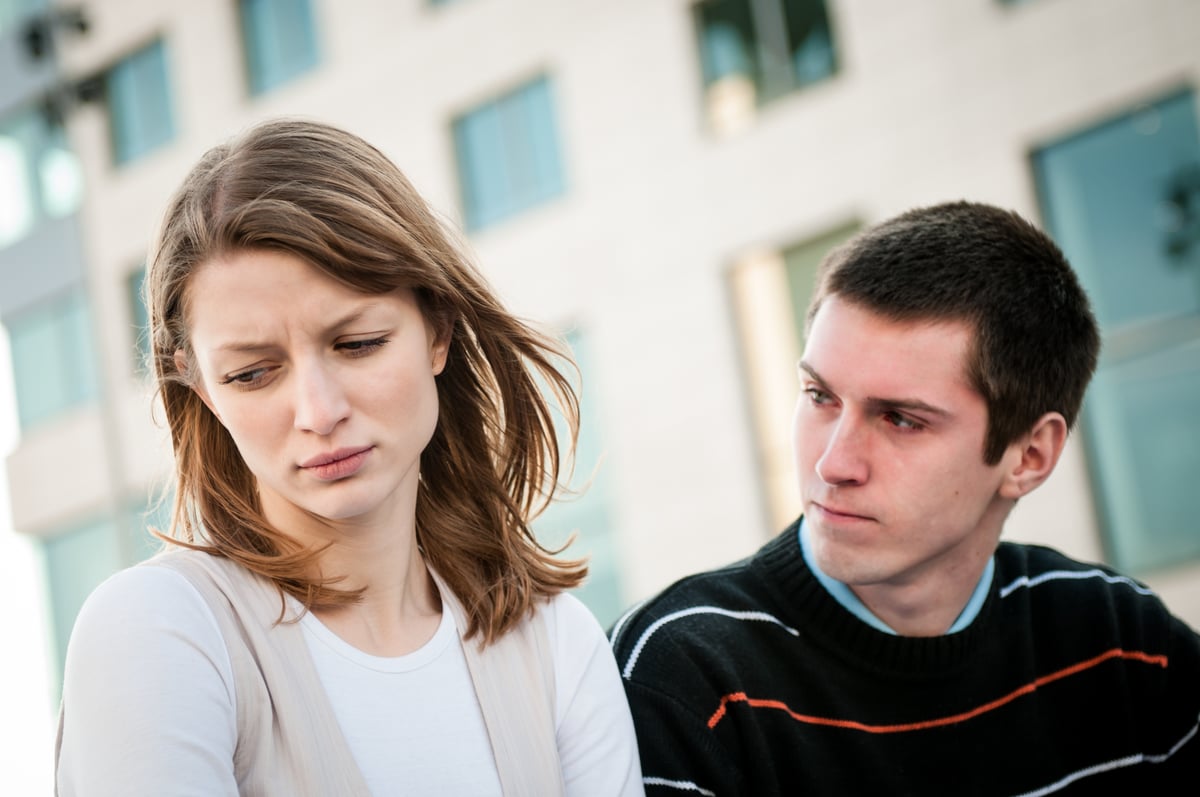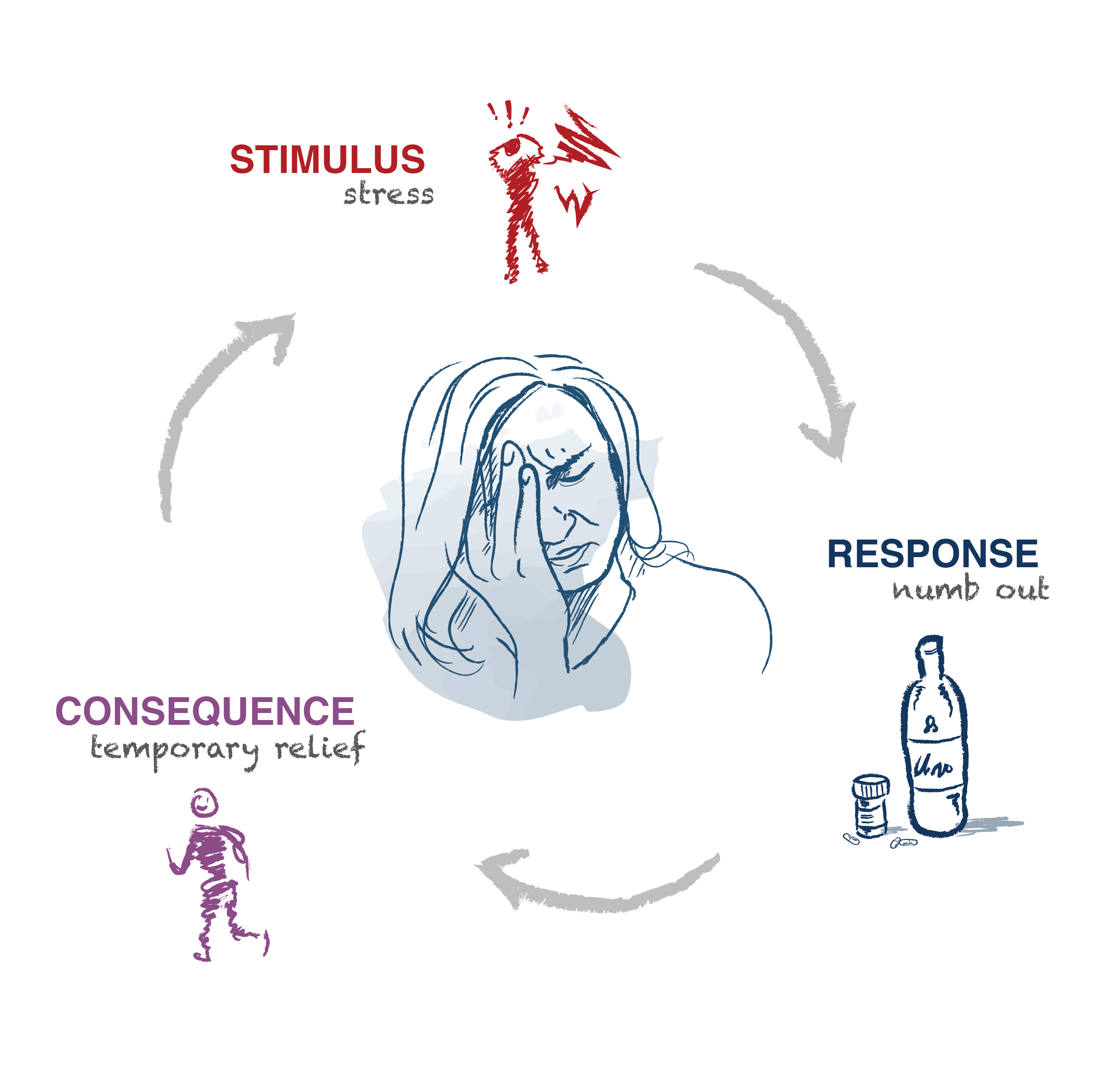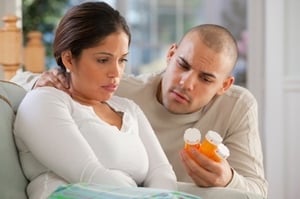
Does the term “toxic relationships” ring uncomfortably true for you? Have you ever found yourself browsing through a library or bookstore and gravitating toward the titles about healing addiction and relationships?
Many people struggle to understand - much less improve - the dynamics of their most difficult relationships.
Codependency and addiction often go together and that amounts to a lot of addiction and relationship issues. In our experience as a Non 12 Step rehab, addiction and dysfunctional relationships go hand-in-hand.
But which came first, the addiction or the relational dysfunction? And how can you heal and build healthy connections going forward?
Here, you’ll learn:
- What dysfunctional relationships are, and how they’re different from healthy connections
- How to spot a dysfunctional relationship in your own life
- How addiction and relationships connect and overlap
- Why shame contributes to both addiction and troubled relationships
- Which mental and emotional counseling strategies to use to start healing your life
- How to take back your power and personal responsibility for your recovery
Are Dysfunctional Relationships Part of Your Addiction Puzzle?
What Are Dysfunctional Relationships?
First, let's talk about what the definition of “dysfunctional relationships.”
The word “dysfunctional” means non-functional or having trouble functioning, but it also refers to being really fixed in rigid roles.
If you have a relationship where you feel like you can only play a certain role - for example, you can only be the listener and the other person is the talker, or you can only be the person who helps and you can't ever receive help in that relationship - then you're dealing with some dysfunction.
In healthy, life-giving, sustaining relationships there's a flow. There is a sense of ease and freedom, there's give and take, there's trading off, one person talks the other person listens, and then they switch. That is the hallmark of a healthy relationship.
Obviously we're humans, we live in the real world.
It's not always going to be perfectly balanced all of the time, but in general if your relationship is characterized by that give and take, then it's probably healthy and functional. If it's really rigid and you feel like you have to stay in a box in order to be in that relationship, then it's probably dysfunctional.
Characteristics of Dysfunctional Relationships
Dysfunctional relationships look like control, compulsion, jealousy, possessiveness, manipulation, drama, and mind games. They look like the relationships that you talk about with the people that you actually trust. You say, "Why did this person do this? I don't understand what's happening here."
They're the relationships where you see the self-help titles in the bookstore and you think, "Oh, my gosh, I think I need to read that because I think that's my life."
That's probably another sign that your relationship is dysfunctional, if you're walking around a bookstore and seeing titles and they're jumping out at you!
With healthy relationships, by contrast …. Dr. Martha Beck has this great line, “Real love always seeks to set the beloved free.”
So if you're in a relationship where you feel that someone is trying to limit your freedom, or vice-versa, if you're the one trying to limit someone else's freedom, then that is a dysfunctional relationship.
But if you're both seeking to love and support each other and set each other free to be the best people that you can be, then that is a healthy and functional relationship.
Addiction in Relationships
But how does this tie into addiction? The real key point I want to share here is that dysfunctional relationships both contribute to and result from substance abuse.
Dysfunctional relationships both contribute to and result from substance abuse and addiction.
What does that mean?
Well, first of all, research tells us that when we measure family dysfunction on various psychological scales, the more dysfunctional the family system, the more likely the children and teens in that system are to become addicted.
So there's a direct relationship between dysfunctional relationships and the development of addiction. (That’s why Family-Based Addiction Prevention is powerful.)
There are many reasons behind this, but one of them is that when we are not able to be healthy and connect with other humans in our lives with the people that we love, then we're much more likely to reach for a substance and try to connect with that instead.
Everything You Think You Know About Addiction is Wrong
There's a great TED Talk by Johann Hari called Everything You Think You Know About Addiction is Wrong. In that talk he shares this idea which is backed by research that we humans are wired to connect, and when we can't connect with other people when we're blocked from interpersonal connection, we're much more likely to turn to substances and form a connection with those.
So that's a really helpful way of thinking about addiction, because it takes the shame and the stigma away.
It's not, "Oh, you're weak and you have no willpower so you're addicted."
No, it's, “You're wired to connect, and if you don't have the option or you don't perceive the option of connecting with another human, then you're much more likely to connect with a substance and get addicted to that substance.”
Shame and Addiction
Next, we have the shame element that contributes to dysfunctional relationships.
We're so much more vulnerable to drug use if we're struggling with shame. If we believe that we're not worthy and we're not good enough, then why not use substances, why not make it a self-fulfilling prophecy?
We're already thinking, "Oh, there's something wrong with me, I'm not good enough," so we're much more likely to turn to the drugs and to the alcohol. That’s the toxic mix of shame and addiction.
And to the other point about how dysfunctional relationships can result from substance abuse … drug use contributes to the dysfunction.
It's a vicious addictive cycle.

So you have dysfunction, you're more likely to use. But then once you're using, your relationships get more dysfunctional. You can see how this whole thing just keeps going.
If you're constantly numbing out, if you're constantly hurting yourself, how could you possibly show up and connect with another person in a really healthy functional way when you're really disconnected from yourself?
You're hurting yourself, so it makes it really hard to have a healthy functional relationship with somebody else.
Healing Addiction and Relationships
The good news is though that it does not have to stay this way. There are so many steps that you can take and ways that you can heal …
Here are some really practical techniques and approaches to use when you're working with dysfunctional relationships.
Healing Addiction on the Mental Level
First on the mental level, we want to look at our thoughts, our judgments, and our limiting beliefs around relationships.
A lot of these get forged - get imprinted, get downloaded, whatever word you want to use - in early childhood. There is a whole body of research on the psychosocial development of early childhood.
We learn a lot of these rules from our family. Some of them could be, "I have to be perfect in order to be loved," or, "If I take time for myself it means that I'm abandoning other people."
Working with the mental level means making a lot of these subconscious rules a bit more conscious and working with techniques to help you to question your snap judgments and question your limiting beliefs. Some modalities that are really helpful are Cognitive Behavioral Therapy (CBT) and Rational Emotive Therapy (RET).
Healing Addiction on the Emotional Level
Then on the emotional level working with dysfunctional relationships ... the key here is really to learn how to offer yourself, the love, the compassion, the understanding, the support that you want from that other person that you're in a relationship with.
Don't misunderstand, this is not to say that we don't need each other and we don't need relationships, because we absolutely do. But we need to come into those relationships with a sense of groundedness and rootedness within ourselves.
If we're looking for those other people to constantly validate us and constantly give us this affirmation that we're okay, then that can lead to all kinds of dysfunction. It's about building this relationship with yourself and learning how to offer yourself care and compassion.
Examining Dysfunctional Relationships
One really good way to start approaching this is to journal about it, to make a list. “I would love it if this person in my life - maybe it's my addicted spouse, my friend, my parent, my sibling - here's what I want them to do. I want them to do all these things.”
Really be honest: “I want them to do the dishes, I want them to show up on time, I want them to use drugs with me.”
Pick whatever you want the other person to do. 
Then once you have those things listed, think: How would I feel if they did these things? How do I think I would feel?
If my spouse did the dishes, how would I feel? If my partner would drink with me, how do I think I would feel?
The key thing to notice really is that … you're putting your emotional well-being in someone else's hands when you say, "In order for me to be happy, I need you to do this."
You've totally abdicated your power. It's now all on them to make you happy.
Feeling Better in Dysfunctional Relationships
The second thing to notice is that these feeling states are actually available to you regardless of what that other person does.
This is a really simplistic example, but can you think of a day where this thing you want didn't happen - say, a day when your spouse didn't do the dishes and your partner didn't drink with you - but you still felt happy and you still felt belonging … ?
That sounds simple, but it’s powerful to realize, "You know what? Wow, I have the capability within myself to create those feeling states and there are other situations in which I can feel those positive emotions that are not just these rigid conditions that I really want fulfilled."
That can be very freeing. That can be a first step toward really loving others as you would want to be loved, with that freedom and that openness.
The Key to Dealing with Dysfunctional Relationships
If are you dealing with dysfunctional relationships, oftentimes it's easy to put the focus on the other person. Your challenge is, how can you become your own best ally and advocate, and stop wasting a lot of energy focused on what you want them to do to change?
Every time that you slip into, "Oh, I need them to do this," pay attention.
Instead, ask, “Okay, well, but what about me? What do I need?” Often we'd rather focus on what we want others to do than on what we want to shift within ourselves.
Healing Underlying Core Issues
Learn more by downloading our free guide, Healing Underlying Core Issues, to help you navigate the process of healing the mental and emotional health issues that hold you back from recovery.
Download E-Book Healing Core Issues



